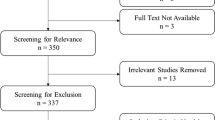Abstract
The paper deals with students’ participation in the Bebras challenge on Informatics and Computational Thinking in Lithuania in 2010–2015. As noticed, secondary school students have an opportunity to learn the basic informatics concepts during the participation in the Bebras challenge. Analyses of a large amount of data from participants’ task solving records are provided. Additionally, observation of the task difficulty level of the Bebras contest in the past 6 years is presented. The target group, on which a research study was focused, is a group of students who solved tasks 6 years in turn. A detailed overview of their results provides an understanding how the participants have solved tasks over these years. The importance of algorithmic thinking as an opportunity for students to learn and understand the basics of informatics as well as develop their computational thinking skills is emphasised. The results of data analysis highlight the importance of students’ achievements by a long-term participation.
Access this chapter
Tax calculation will be finalised at checkout
Purchases are for personal use only
Similar content being viewed by others
References
Aesaert, K., van Braak, J.: Gender and socioeconomic related differences in performance based ICT competences. Comput. Educ. 84, 8–25 (2015)
Atanasova, G.E., Hristova, P.T.: Methodological aspects of the initial training of students for participation. In: Programming Contest in Proceedings of 2015 Balkan Conference on Informatics: Advances in ICT, Romania, pp. 1–9 (2015)
Bebras International Challenge on Informatics and Computational Thinking. http://www.bebras.org/en/facts. Accessed 30 Apr 2016
Bellettini, C., Lonati, V., Malchiodi, D., Monga, M., Morourgo, A., Torelli, M.: How challenging are bebras tasks? An IRT analysis based on the performance of Italian students. In: Proceedings of 2015 ACM Conference on Innovation and Technology in Computer Science Education, pp. 27–32 (2015)
Bucher, T.: The algorithmic imaginary: exploring the ordinary affects of Facebook algorithms. Inf. Commun. Soc., 1–15 (2016). http://dx.doi.org/10.1080/1369118X.2016.1154086
CSTA & ISTE: Operational definition of computational thinking for K-12 education (2011). https://csta.acm.org/Curriculum/sub/CurrFiles/CompThinkingFlyer.pdf
Dagienė, V., Futschek, G.: Bebras international contest on informatics and computer literacy: criteria for good tasks. In: Mittermeir, R.T., Sysło, M.M. (eds.) ISSEP 2008. LNCS, vol. 5090, pp. 19–30. Springer, Heidelberg (2008)
Dagiene, V., Jevsikova, T.: Reasoning on the content of informatics education for beginners. Socialiniai mokslai 78(4), 84–90 (2012)
Dagienė, V., Mannila, L.A, Poranen, T., Rolandsson, L., Söderhjelm, P.: Students’ performance on programming-related tasks in an informatics contest in Finland, Sweden and Lithuania. In: Proceedings of 2014 Conference on Innovation & Technology in Computer Science Education, Uppsala, Sweden, 21–25 June 2014
Dagienė, V., Stupurienė, G.: Bebras- a sustainable community building model for the concept based learning of informatics and computational thinking. Inform. Educ. 15(1), 25–44 (2016)
Forišek, M.: The difficulty of programming contests increases. In: Hromkovič, J., Královič, R., Vahrenhold, J. (eds.) ISSEP 2010. LNCS, vol. 5941, pp. 72–85. Springer, Heidelberg (2010)
Futschek, G.: Algorithmic thinking: the key for understanding computer science. In: Mittermeir, R.T. (ed.) ISSEP 2006. LNCS, vol. 4226, pp. 159–168. Springer, Heidelberg (2006)
Yadav, A., Mayfield, Ch., Zhou, N., Hambrusch, S., Korb, J.T.: Computational thinking in elementary and secondary teacher education. ACM Trans. Comput. Educ. 14(1), 5 (2014)
Kalelioğlu, F., Gülbahar, Y.: The effects of teaching programming via scratch on problem solving skills: a discussion from learners’ perspective. Inform. Educ. 13(1), 33–55 (2014)
Mannila, L., Dagiene, V., Demo, B., Grgurina, N., Mirolo, C., Rolandsson, L., Settle, A.: Computational thinking in K-9 education. In: Proceedings of Working Group Reports of the 2014 on Innovation & Technology in Computer Science Education Conference, ITiCSE-WGR 2014, pp. 1–29 (2014)
OECD: Review of Policies to Improve the Effectiveness of Resource Use in Schools (Scholl Resources review). Country Background report for Lithuania (2015). https://www.oecd.org/edu/school/Lithuania_CBR_OECD-SRR_May2015.pdf
Palmer, D.: Research report: a motivation view of constructivist-informed teaching. Int. J. Sci. Educ. 27(10), 1853–1881 (2005)
White, R.W.: Motivation reconsidered: the concept of competence. Psychol. Rev. 66, 297–333 (1959)
Peerear, J., Van Petegem, P.: Measuring integration of information and communication technology in education: an item response modelling approach. Comput. Educ. 58, 1247–1299 (2012)
Perrenet, J., Groote, J.F., Kaasenbrood, E.: Exploring students’ understanding of the concept of algorithm: levels of abstraction. In: Proceedings of 10th Annual SIGCSE Conference on Innovation and Technology in Computer Science Education, pp. 64–68 (2005)
Strain-Seymour, E., Way, W., Dolan, R.P.: Strategies and Processes for Developing Innovative Items in Large-Scale Assessments. Pearson Education, Inc., New York (2009). http://images.pearsonassessments.com/images/tmrs/StrategiesandProcessesforDevelopingInnovativeItems.pdf
Van der Vegt, W.: Predicting the difficulty level of Bebras task. Olymp. Inform. 7, 132–139 (2013)
Vaníček, J.: Bebras informatics contest: criteria for good tasks revised. In: Gülbahar, Y., Karataş, E. (eds.) ISSEP 2014. LNCS, vol. 8730, pp. 17–28. Springer, Heidelberg (2014)
Acknowledgements
The research is partially supported by the Google CS4HS initiative – many thanks! Also, the authors would like to explicitly thank all members of the international Bebras challenge on informatics and computational thinking community that took part in task development and influenced in this way the outcome of this paper.
Author information
Authors and Affiliations
Corresponding author
Editor information
Editors and Affiliations
Rights and permissions
Copyright information
© 2016 Springer International Publishing AG
About this paper
Cite this paper
Stupurienė, G., Vinikienė, L., Dagienė, V. (2016). Students’ Success in the Bebras Challenge in Lithuania: Focus on a Long-Term Participation. In: Brodnik, A., Tort, F. (eds) Informatics in Schools: Improvement of Informatics Knowledge and Perception. ISSEP 2016. Lecture Notes in Computer Science(), vol 9973. Springer, Cham. https://doi.org/10.1007/978-3-319-46747-4_7
Download citation
DOI: https://doi.org/10.1007/978-3-319-46747-4_7
Published:
Publisher Name: Springer, Cham
Print ISBN: 978-3-319-46746-7
Online ISBN: 978-3-319-46747-4
eBook Packages: Computer ScienceComputer Science (R0)




